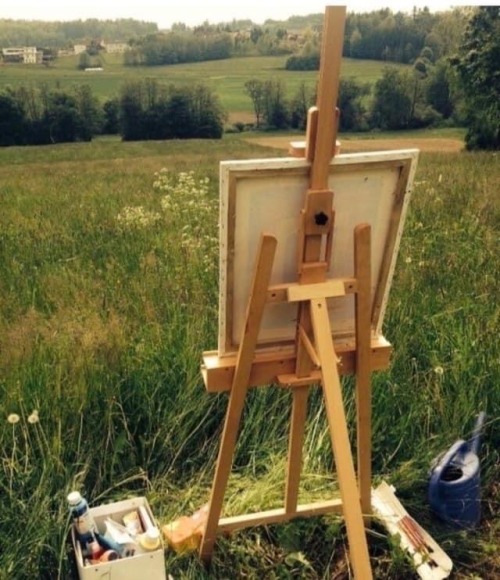Theblogofwildfellhall

More Posts from Theblogofwildfellhall and Others
Le Passé Composé - Masterpost
The passé composé is the most commonly used past tense in French.
It is formed using the following formula:
subject + avoir or être (conjugated in the present tense) + past participle
Conjugating avoir and être
In the present tense, avoir (to have) is conjugated as follows:
je - ai ¹ | nous - avons
tu - as | vous - avez
il/elle/on - a | ils/elles - ont ²
In the present tense, être (to be) is conjugated as follows:
je - suis | nous - sommes
tu - es | vous - êtes
il/elle/on - est | ils/elles - sont
Forming the past participle
For regular -er verbs, drop -er and add -é (parler → parlé)
For regular -re verbs, drop -re and add -u (vendre → vendu)
For regular -ir verbs , drop -ir and add -i (finir → fini)
Forms of past participles:
Nearly all past participles use the following endings to indicate gender and number:
__Masculine__|__Feminine____
Singular | é / u / i | ée / ue / ie
Plural | és / us / is | ées / ues / ies
Common irregular past participles:
être (to be) → été
faire (to do, make) → fait ³
offrir (to offer) → offert ³
ouvrir (to open) → ouvert ³
naître (to be born) → né
mourir (to die) → mort ³
avoir (to have) → eu
boire (to drink) → bu
connaître (to know) → connu
coire (to believe) → cru
devoir (must; to owe) → dû
lire (to read) → lu
pleuvoir (to rain) → plu
pouvoir (can; to be able to) → pu
recevoir (to receive) → reçu
savoir (to know) → su
voir (to see) → vu
vouloir (to want) → voulu
venir (to come) → venu
mettre (to place) → mis ³
prendre (to take) → pris ³
conduire (to drive) → conduit ³
dire (to say)→ dit ³
écrire (to write) → écrit ³
asseoir (to sit down) → assis ³
Irregular verbs formed from other irregular verbs use the same base for their past participles:
mettre → mis; permettre (to permit, allow) → permis
ouvrir → ouvert; couvrir (to cover) → couvert
When to use avoir or être
The majority of French verbs use avoir in the passé composé. Default to avoir, barring the following exceptions:
The following verbs usually use être as its auxilary verb ⁴ in the passé composé. They often have to do motion, but not all verbs of motion use être . They therefore must be memorized.
aller - to go
arriver - to arrive
descendre ⁵ - to descend / go downstairs
entrer ⁵ - to enter
monter ⁵ - to climb
mourir - to die
naître ⁵ - to be born
partir ⁵ - to leave
passer - to pass
rester - to stay
retourner - to return
sortir ⁵ - to go out
tomber ⁵ - to fall
venir ⁶ - to come
All pronominal verbs, without exception, use être in the passé composé.
Agreement in the passé composé
Agreement with avoir
The past participle normally agrees in gender and number with the direct object (or direct object pronoun) if it precedes the verb, barring the exceptions that follow.
J’ai lu les lettres. (I read the letters.)
Je les ai lues. (I read them.)
J’ai ouvert les lettres. (I opened the letters.)
Les lettres qui j’ai ouvertes sont lá-bas. (The letters that I opened are over there.)
Exceptionally, the past participle does not have to agree with the direct object in causative constructions or with certain constructions with verbs of perception ⁷.
Je les a fait lire les lettres. (I made them read the letters.)
Les lettres que j’ai vu écrire. (I saw the letters get written.)
Agreement with être
The past participle must always agree with the subject with non-pronominal verbs that use être.
Elle est allée à la poste pour déposer les lettres. (She went to the post office to drop off the letters.)
Vous êtes parties de la poste avec les lettres. (You (f.pl.) left the post office with the letters.)
The past participle must agree with the reflexive pronoun of pronominal verbs when the reflexive pronoun is the direct object. It does not agree with the indirect object.
Elle s’est asisse à son bureau quand elle lisait la lettre. (She sat herself down at her desk when she was reading the letter.
Nous nous sommes envoyés des lettres. (We sent each other letters.)
Negating in the passé composé
Add the standard ne… pas construction around avoir or être, excluding the subject and past participle. Include objective and adverbial pronouns that precede the auxiliary verb ⁸. When using inversion, include the subject and the verb between the negative constructions.
Je n’ai pas écrit ces lettres (I did not write those letters.)
Je ne les ai pas écrits ces lettres. (I did not write them.)
Je ne suis pas allé à la poste pour déposer les lettres. (I did not go to the post office to drop off the letters.)
Je n’y suis pas allé. (I did not go there.)
N’êtes-vous pas retournés de la poste ? (Did you return from the post office?)
Questioning in the passé composé
Questions are formed in the passé composé using the inversion or est-ce que constructions.
Avez-vous déja écrit les lettres ? (Do you write the letters yet?)
Est-ce qu’ils sont allés à la poste ? (Did they go to the post office?)
Pourquoi n’avez-vous pas envoyé les lettres ? (Why did you not send the letters?)
Questions can be asked informally using standard SVO word order with a question tone at the end of the sentence.
Tu as déja envoyé les lettres ? (You sent the letters already?)
Translating the passé composé
The passé composé can be translated as [verb + ed], [to have + past participle] or [did / do + verb].
J’ai écrit les lettres. (I wrote / have written / did write the letters.)
¹ je and ai are elided as j’ai.
² Be sure to liaise the s and o to distinguish it from sont, the third person plural form of être.
³ These verbs use irregular past participle forms to indicate gender and number:
Fait, ouvert, offert, conduit, écrit, dit, and mort use the following:
_______|__Masculine__|__Feminine__
Singular | ∅ | e
Plural | s | es
Mis, pris, and assis use the following:
_______|__Masculine__|__Feminine__
Singular | ∅ | e
Plural | ∅ | es
⁴ when used intransitively. When they take a direct object, they use avoir instead.
⁵ These verbs can add re- to make verbs that indicate that the action was repeated; these derivatives use être as well.
⁶ venir has the following derivatives: devenir (to become), parvenir (to reach, achieve), and revenir (to come again, come back); these use être as well.
⁷ The six verbs of perception are apercevoir (to catch a glimpse of), écouter (to listen) entendre (to hear), regarder (to watch), sentir (to feel), and voir (to see); the past participle never agrees with the direct object of the infinitive; the past participle agrees with the subject of the infinitive when it precedes the verb.
⁸ Objective and adverbial pronouns precede the auxiliary verb and succeed the subject.
tag yourself ; types of artists
writer - biting their lip in concentration, always carries a pen, powerful looks, takes showers at 4:00 am, adrenaline rushes, sits outside during thunderstorms, flickering street lamps, tired gazes, procrastinator, collects words
sketcher - wants long hugs and little bits of affection, soft hair, too much coffee, messy doodles during class, has plants beside their bed, loves dark chocolate, cares a lot about their friends, always sketching, often visits art museums
painter - sometimes likes how the palette looks more than the painting, i’m fine ™, pushing a paintbrush back and forth on a canvas bc they find it calming, getting high to feel something, cotton candy flavored ice cream, visual learner, associates certain people with certain colors
actor - wears one pair of sneakers year round, listens to musicals, sorta depressed, loves ancient mythology, talks to the new kid, messy backpack, a complete narcissist yet also extremely self-deprecating, pretty lips n eyes
musician - scribbles down song lyrics at 5:00 am right before crashing, is trying to learn 6923 instruments at once, aesthetic ™, does good in school, extensive skin care routine, pretty bedroom, loves to watch the sky turn pastel rainbow during sunset
photographer - finds beauty in little things, will risk themselves to get a good angle, kinda shitty past, dilated pupils, lives on energy drinks and granola bars, appreciative of the world, overthinker, primary colors
tag your vibe
days of the week;
monday: snoozing your alarm clock, navy, seeing the moon in the morning, vanilla ice cream, writing poetry, blurry photographs, windswept hair, iced coffee
tuesday: seeing a cat on the street, a light rain shower, untied shoelaces, indistinct music from someone else’s earphones, empty coffee shops, denim jackets, long train rides
wednesday: pastel highlighters, drinking water, group laughter, plucking daisy petals, floral scents, counting down to a birthday, peonies
thursday: old books, a downpour, telling the truth, comfortable silence, hand holding, wrapping a gift, the smell of leather, reminiscence
friday: neon lights, sweet cravings, a little bit drunk, falling in love with a stranger, remembering your dreams, cherry red, late night showers, desserts at midnight
saturday: watering plants, childhood cartoons, a bowl of cereal, meeting someone new, waking up early and laying in bed, spontaneous plans, sitting on a rooftop
sunday: strawberry smoothies, golden hour, a soft feeling of wistfulness, lazy afternoons, 4pm naps, lofi mixes, deja vu, long daydreams, lighting sparklers


"Maybe there is a beast… maybe it's only us."
-William Golding; Lord of the Flies
-
 brambleberrybush liked this · 6 months ago
brambleberrybush liked this · 6 months ago -
 ritsu-sekaiichi-hatsukoi18 reblogged this · 8 months ago
ritsu-sekaiichi-hatsukoi18 reblogged this · 8 months ago -
 hindmenmiconsri liked this · 1 year ago
hindmenmiconsri liked this · 1 year ago -
 bornsapphic reblogged this · 1 year ago
bornsapphic reblogged this · 1 year ago -
 eklipsian liked this · 3 years ago
eklipsian liked this · 3 years ago -
 throwaway45795 liked this · 3 years ago
throwaway45795 liked this · 3 years ago -
 babytzippy liked this · 3 years ago
babytzippy liked this · 3 years ago -
 sorems-art liked this · 3 years ago
sorems-art liked this · 3 years ago -
 phonenumber01 liked this · 3 years ago
phonenumber01 liked this · 3 years ago -
 self-sabotaginginc liked this · 3 years ago
self-sabotaginginc liked this · 3 years ago -
 sleazewave reblogged this · 3 years ago
sleazewave reblogged this · 3 years ago -
 jimenablack93 liked this · 3 years ago
jimenablack93 liked this · 3 years ago -
 pxrknatt liked this · 3 years ago
pxrknatt liked this · 3 years ago -
 pumpkinsae liked this · 3 years ago
pumpkinsae liked this · 3 years ago -
 violetsilverado reblogged this · 3 years ago
violetsilverado reblogged this · 3 years ago -
 raresunrays reblogged this · 3 years ago
raresunrays reblogged this · 3 years ago -
 lolitalovestory reblogged this · 3 years ago
lolitalovestory reblogged this · 3 years ago -
 lolitalovestory liked this · 3 years ago
lolitalovestory liked this · 3 years ago -
 afortunatemuslima reblogged this · 3 years ago
afortunatemuslima reblogged this · 3 years ago -
 gardengnomegang liked this · 3 years ago
gardengnomegang liked this · 3 years ago -
 cloud-baby reblogged this · 3 years ago
cloud-baby reblogged this · 3 years ago -
 insanitys-wonderland liked this · 3 years ago
insanitys-wonderland liked this · 3 years ago -
 vintage-nymph-lover reblogged this · 3 years ago
vintage-nymph-lover reblogged this · 3 years ago -
 lykanthrosis liked this · 3 years ago
lykanthrosis liked this · 3 years ago -
 comfymothling reblogged this · 3 years ago
comfymothling reblogged this · 3 years ago -
 soup-and-crackers reblogged this · 3 years ago
soup-and-crackers reblogged this · 3 years ago -
 ethio-babe reblogged this · 3 years ago
ethio-babe reblogged this · 3 years ago -
 yearningspace liked this · 3 years ago
yearningspace liked this · 3 years ago -
 aivlisliss reblogged this · 3 years ago
aivlisliss reblogged this · 3 years ago -
 lady-sweetpea reblogged this · 3 years ago
lady-sweetpea reblogged this · 3 years ago -
 dbtl reblogged this · 3 years ago
dbtl reblogged this · 3 years ago -
 mycozynature reblogged this · 3 years ago
mycozynature reblogged this · 3 years ago -
 soothewave reblogged this · 3 years ago
soothewave reblogged this · 3 years ago -
 travelfilmscoffe liked this · 3 years ago
travelfilmscoffe liked this · 3 years ago -
 fleur-et-fleuve reblogged this · 3 years ago
fleur-et-fleuve reblogged this · 3 years ago -
 diamonds-in-our-bones liked this · 3 years ago
diamonds-in-our-bones liked this · 3 years ago -
 coldsnapcap liked this · 3 years ago
coldsnapcap liked this · 3 years ago -
 unobtainius reblogged this · 3 years ago
unobtainius reblogged this · 3 years ago -
 vintage-mountain reblogged this · 3 years ago
vintage-mountain reblogged this · 3 years ago -
 sv5t1 liked this · 3 years ago
sv5t1 liked this · 3 years ago -
 unobtainius liked this · 3 years ago
unobtainius liked this · 3 years ago -
 evanlikesfrogs liked this · 3 years ago
evanlikesfrogs liked this · 3 years ago -
 alicemaskedmadness liked this · 3 years ago
alicemaskedmadness liked this · 3 years ago -
 lesbihen reblogged this · 3 years ago
lesbihen reblogged this · 3 years ago
Emma. 27. A blog for Classic Literature, language learning, flowers, and aesthetic
117 posts













